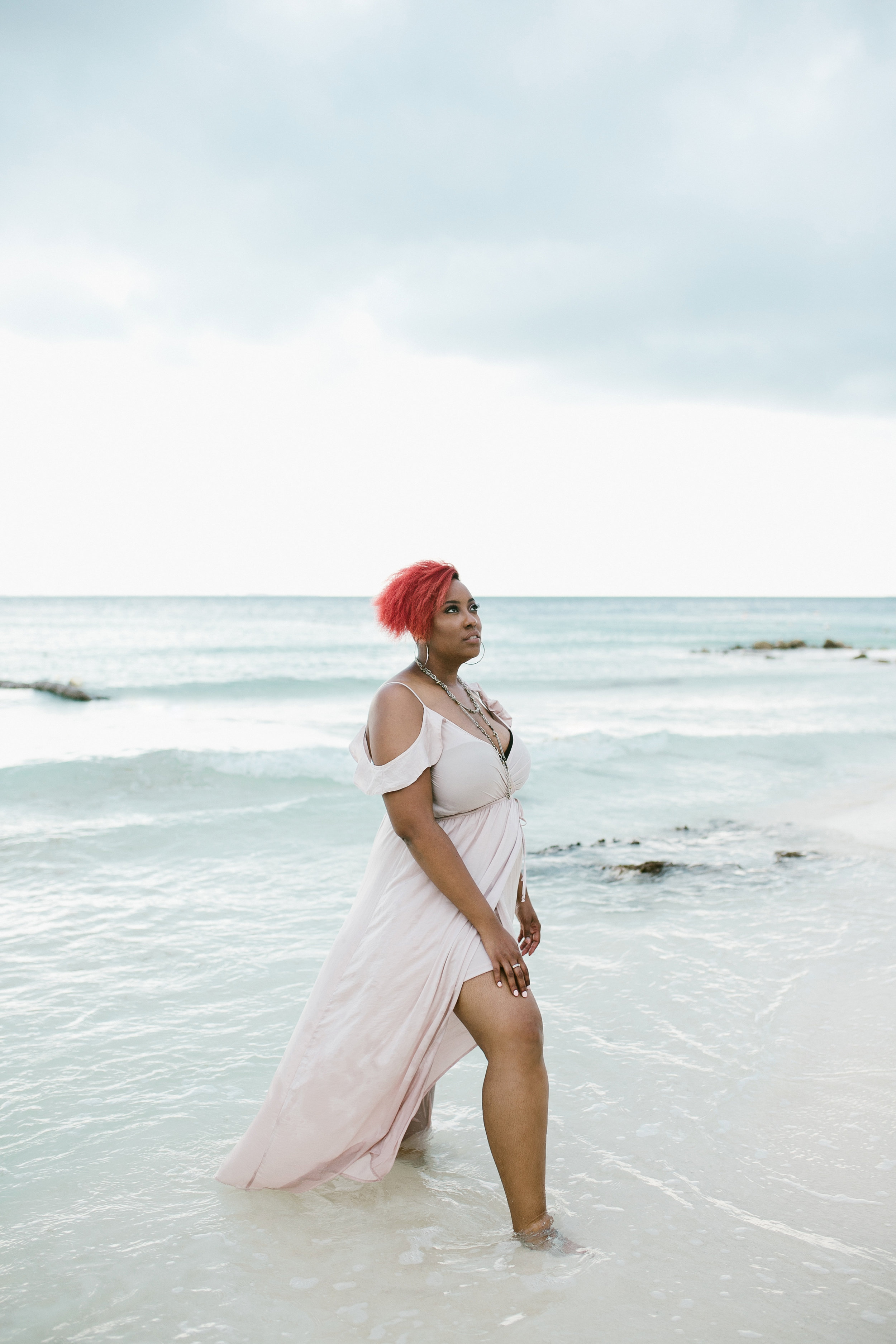How Disney's Black Mermaid Represents Black Women in America
Fantasy vs reality, one would think in 2019 people in America would be able to separate the two when it relates to racial tensions in America.
Disney’s casting of Halle Bailey as Ariel in their live action movie of “The Little Mermaid” has proven that even fantasy can be the center of racial divide that has continued to plague the “land of the free and the home of the brave”. Black women, who grew up in the era of Disney’s 1989 version of “The Little Mermaid, are ecstatic for Halle and how her role represents our childhood dreams and fantasies of seeing ourselves as a Disney princess. That excitement is even greater knowing our little girls will have the opportunity to relate to a fictional princess sooner that we could have ever imagined.
Meanwhile #notmyariel is trending just as much because, white people, some not all, are upset at the thought that their Ariel is going to be black. “Poor unfortunate souls.” Isn’t that ironic?
Ranking after Cinderella, The Little Mermaid is #2 on the list of my favorite Disney movies. I watched that movie just as much as my son watched Disney Pixar’s Cars one, two, and three. A MILLION TIMES!
My favorite part of the movie is when Ariel and Eric were in the boat and the Ariel’s sea friends begin to make music and sing “Kiss the Girl”. Eric both mesmerized by her beauty and still trying to figure out her name came so close to making that kiss happen. If only he knew that kiss would give her back her voice.
At 7 years old, I wanted to be Ariel so bad. I wanted to have a boy look me in my eyes, be in love, and kiss me too! I grew up wanting that. I wanted to be a princess who’s Prince Charming would just come swoop me up so I could live life in a fairytale. However, there is one thing about fairytales that I always dismissed; the fact that every fairytale has a great ending, but getting there you are guaranteed to be met with some sort of sacrifice. I learned as an adult not to dismiss the hard parts of the fairy tales of life.
So, how does Disney's black mermaid represent Black Women in America?
“The film tells the story of a mermaid princess named Ariel who dreams of becoming human, after falling in love with a human prince named Eric.” Fascinated by humans Ariel was willing to give up her voice for three days, exchanged her mermaid tail for a pair of legs, and go on a mission for the kiss that would permanently turn her into a human.
As a black woman this story really reminds me of following for the American Dream, “in which freedom includes the opportunity for prosperity and success, as well as an upward social mobility for the family and children, achieved through hard work in a society with few barriers”, then realizing that I have to constantly give up my voice for a pair of legs to stand on.
Let me say this again for the people in the back.
Black women in American have to constantly give up their voice for a pair of legs to stand on in hopes of achieving the “American Dream.”
I found out as an adult that the American Dream was a fantasy. It was sold to me in a way that I believed that if I followed the book I would be successful. As I grew older, I realized that my voice as a black women is silenced everywhere.
An article written by Maura Cheeks in the Harvard Business Review discusses how black women navigate both race and gender in the workplace. The article touches on how black women must “dim their light” to make others feel comfortable in addition to always having someone in your corner or face getting “weeded out”.
I have a friend who recently lost her well paying position who feels like she was weeded out because she advocated too much for people of color. Her words to me were “I’m tired. I work my ass off and at any given moment I can be fired and the needs of my family means nothing.”
Why can’t we, black women, be our authentic self, thrive without feeling like we must be someone else to be successful and get paid? Black women earn more college degrees than anyone in America, yet we are nowhere close to closing the race, gender, or wage gaps, despite being sold on “The American Dream”.
2014 Statistics from OKcupid reveal that black women are the least desirable in the dating pool.
Say what now? YES, you read that right “least desirable”. As magical as we are and as much love that we give with the expectation of it being reciprocated in a romantic relationship to see real numbers showing that we are the least desirable is disappointing. Again we find ourselves trying to defy the stereotypes of being too proud, not submissive enough, to loud, controlling, too much education and ambition. We do everything but try to settle in hopes of finding love.
We are taught to be strong black women, yet in relationships we give up our voice for the hope of love. Sounds like Ariel to me.










